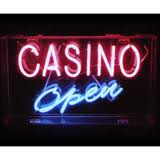MONEY MANAGEMENT UPDATE – JANUARY 27, 2012
 INCOME-ORIENTED ETF YIELDS FOR JANUARY 27, 2012: The current market is reflecting an increasing tolerance towards risk. Money that has been in money market funds yielding zero and intermediate-term (7-10 year maturities) treasury bonds yielding 2.5% are searching for higher rates of return. All that remains for these conservative investors and institutions is the all-clear signal that the return sufficiently compensates for the risk in lower quality bonds, high dividend paying equities, and high yielding preferred stocks.
INCOME-ORIENTED ETF YIELDS FOR JANUARY 27, 2012: The current market is reflecting an increasing tolerance towards risk. Money that has been in money market funds yielding zero and intermediate-term (7-10 year maturities) treasury bonds yielding 2.5% are searching for higher rates of return. All that remains for these conservative investors and institutions is the all-clear signal that the return sufficiently compensates for the risk in lower quality bonds, high dividend paying equities, and high yielding preferred stocks.
The following list is comprised of ETFs that are geared towards income and income plus growth. They are ranked according to their present dividend yield:
- 7.73% JNK – SPDR Lehman High Yield Bond (Average volume=4,590,090)
- 7.69% HYG – iShares High Corporate Bonds (Average volume=2,319,270)
- 7.62% PGF – PowerShares Financial Preferred (Average volume=357,127)
- 6.99% PFF – S&P U.S. Preferred Stock Index (Average volume=1,277,100)
- 6.78% PGX – PowerShares Preferred Portfolio (Average volume=467,321)
- 5.42% CVY – Guggenheim Multi-Asset Income (Average volume=239,577)
- 3.94% XLU – Utilities Select Sector SPDR (Average volume=7,383,240)
- 3.70% PEY – PowerShares High Yield Dividend (Average volume=518,074)
- 3.44% DVY – iShares DJ Select Dividend Index (Average volume=1,849,590)
- 3.30% TLT – Barclays 20+ Year Treasury Bond Fund (Average volume=8,469,930)
- 3.23% SDY – SPDR S&P Dividend Index (Average volume=1,278,950)
- 2.94% VYM – Vanguard High Dividend Yield (Average volume=541,831)
- 2.56% IEF – Barclays 7-10 Year Treasury Bond Fund (Average volume=946,802)
- 2.44% DIA – SPDR Dow Jones Industrial Average (Average volume=7,470,160)
- 2.14% VIG – Vanguard Dividend Appreciation (Average volume=1,342,150)
- 2.05% SPY – SPDR S&P 500 (Average volume=191,876,000)
**********
“Approximately 75% of the companies traded on the New York Stock Exchange pay cash dividends to their shareholders. It is perhaps the most sacred of all corporate financial components and the measure of value we hold in the highest regard.”
Geraldine Weiss and Gregory Weiss ~ Authors of The Dividend Connection (1995)








